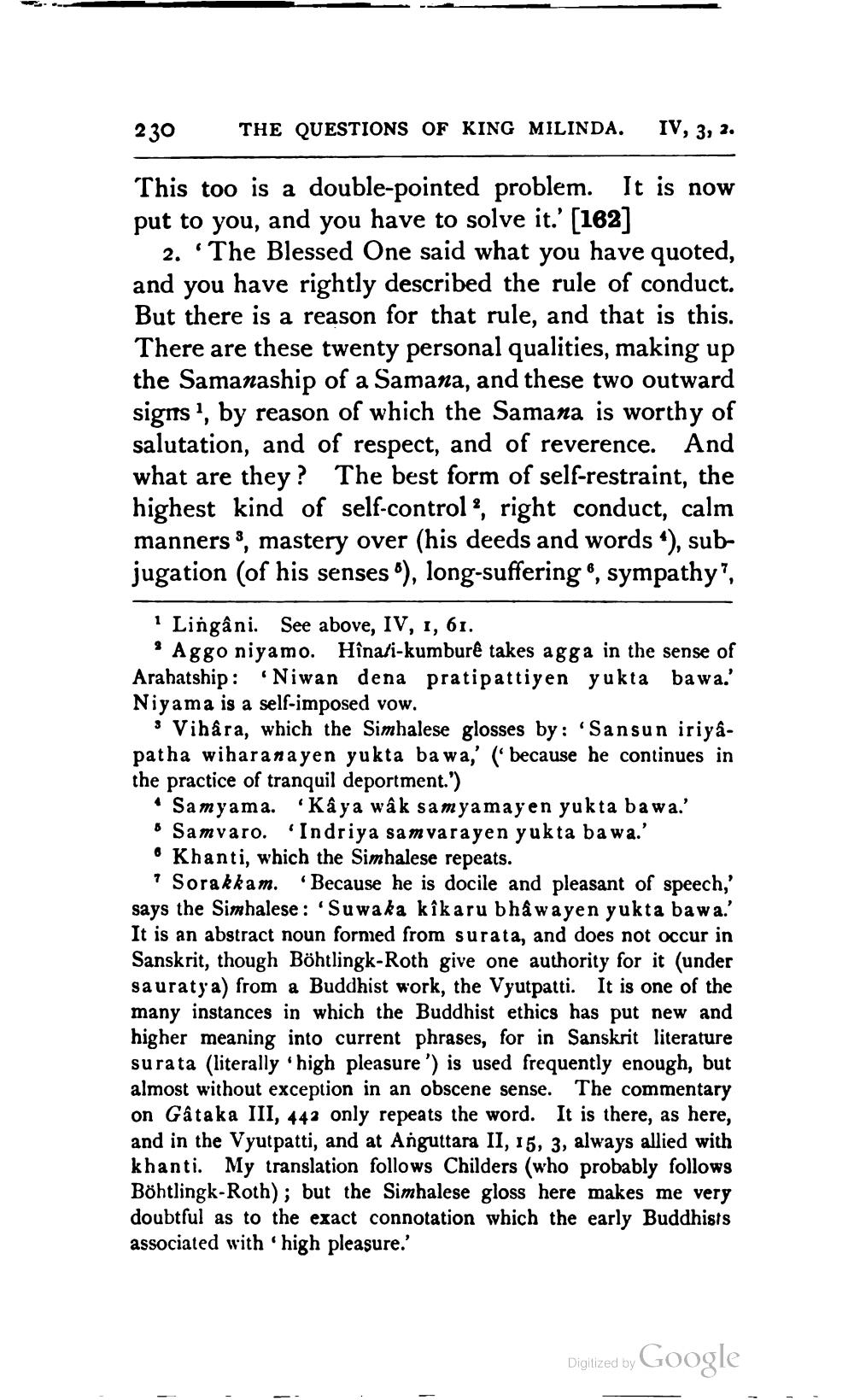________________
230
THE QUESTIONS OF KING MILINDA.
IV, 3, 2.
This too is a double-pointed problem. It is now put to you, and you have to solve it.' [162]
2. The Blessed One said what you have quoted, and you have rightly described the rule of conduct. But there is a reason for that rule, and that is this. There are these twenty personal qualities, making up the Samanaship of a Samana, and these two outward signs ", by reason of which the Samana is worthy of salutation, and of respect, and of reverence. And what are they? The best form of self-restraint, the highest kind of self-control?, right conduct, calm manners 3, mastery over (his deeds and words), subjugation (of his senses), long-suffering ®, sympathy?,
Lingâni. See above, IV, 1, 61. * Aggo niyamo. Hînati-kumburê takes agga in the sense of Arahatship: "Niwan dena pratipattiyen yukta bawa.' Niyama is a self-imposed vow.
• Vihara, which the Simhalese glosses by: 'Sansun iriyapatha wiharanayen yukta bawa,' (because he continues in the practice of tranquil deportment.")
• Samyama. Kaya wâk samyamayen yukta bawa.' * Samvaro. "Indriya samvarayen yukta ba wa.' . Khanti, which the Simhalese repeats.
? Sorakkam. Because he is docile and pleasant of speech,' says the Simhalese: 'Suwaka kîkaru bha wa yen yukta bawa.' It is an abstract noun formed from surata, and does not occur in Sanskrit, though Böhtlingk-Roth give one authority for it (under sauratya) from a Buddhist work, the Vyutpatti. It is one of the many instances in which the Buddhist ethics has put new and higher meaning into current phrases, for in Sanskrit literature surata (literally 'high pleasure') is used frequently enough, but almost without exception in an obscene sense. The commentary on Gataka III, 442 only repeats the word. It is there, as here, and in the Vyutpatti, and at Anguttara II, 15, 3, always allied with khanti. My translation follows Childers (who probably follows Böhtlingk-Roth); but the Simhalese gloss here makes me very doubtful as to the exact connotation which the early Buddhists associated with high pleasure.'
Diglized by Google




